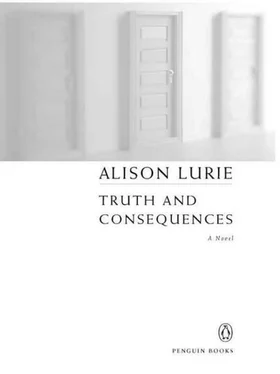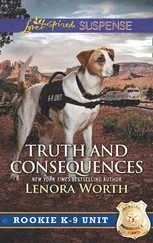“Are you going to the grocery this morning?” he had asked as she headed for the back door, carrying her garden basket and a trowel. “Because if you are, I need a bag of prunes and a couple bottles of prune juice. And if you have the time, I’d like a box of Fleet Enemas from the drugstore.” Yes, he had admitted, he was constipated again, in fact very constipated, and yes, he was very uncomfortable.
Naturally Jane had said that she was going to the grocery and would have time to stop at the drugstore. She had put down her basket and taken off her gardening hat and gloves, and hastened to make this statement true.
When Alan was in pain, which was still almost always, his needs took precedence over hers. That was natural and inevitable, but it was also annoying. But it was useless and also mean to give in to her annoyance, to let it ruin her day and also Alan’s if she wasn’t careful. I must try to be a good person, even if I’m really not, she reminded herself, as she often did now. He is in constant and awful pain, and I am not in pain.
Anyhow the current annoyance was nearly over. She’d already been to the drugstore and in twenty minutes she’d be back in her garden, picking ripe tomatoes and cutting some of her basil for pesto and covering the rest in case there was an early frost tonight. But making pesto was selfish, since Alan now wouldn’t eat anything that obviously contained garlic. Since his illness began he had also declared a distaste for cucumbers, cabbage, spinach, artichokes, and zucchini (this last was a special nuisance since at this time of year Jane’s garden, like that of everyone she knew, was oversupplied with that vegetable). Once Alan had been happy to eat all these things, and also the wild dandelion greens, sorrel, purslane, and chives that she loved to gather and add to salads and soup. Now he would not even touch the splendid watercress that grew in the stream near their house. He had also recently asked Jane not to bake or buy any cookies, cakes, or ice cream, because he wanted to lose some weight. She had complied, though she sometimes concealed a chocolate bar in the drawer of her desk. Meanwhile,Alan, as if reverting to childhood, had begun to crave high-calorie snacks. When he couldn’t sleep at night he would go down to the pantry and graze; next morning a whole bag of potato chips or peanuts or dried coconut would be gone.
What made all this worse was that it was so out of character. In the past Alan had never done anything of the sort, no more than he had ever hung around the house most of the day or constantly called for her help or wanted to know where she was going to be at every moment. Often now when she looked at the man lying on her sofa or bed or in her bathtub she almost did not recognize him. That isn’t Alan Mackenzie, she would involuntarily think: it’s some pale, fat, weak, greedy, demanding person—someone like the shabby, threatening stranger she thought she’d seen coming down the drive on that bad morning in August.
The supermarket was more or less empty, but as Jane reached the end of one aisle and hastened up the next, she saw a man in a bright yellow shirt, jeans, and sandals frowning in front of a display of lettuce. Jane noticed first that he was very attractive, and then, less happily, that he was Henry Hull, Delia’s husband.
“Well, hello,” he greeted her.
“Oh, hi, how are you?” she replied neutrally.
“Discouraged. Look at this lettuce, it’s pathetic.” Henry held up a bunch of yellow-green leaves that drooped from his square brown hand in a sickly manner. “And the tomatoes. Hard as rocks and such a peculiar color, like dried tomato soup. Even the carrots are rubbery and withered. I don’t get it. Here we are in the middle of farm country, you’d think they’d have something better.”
“Yes, but nobody buys vegetables at the grocery, not at this time of year,” Jane said. “If you don’t have a garden yourself, you go to the Farmers’ Market. They have wonderful tomatoes there now.”
“Oh? I must look into that. Where is this market?”
“It’s downtown, near the lake.”
“Downtown?” Henry said in a vague manner.
“Yes, you take Route 13, that’s just up the road, and then . . .” Jane paused. “I was planning to go there today anyhow, for apples and honey.”
“They have apples and honey?”
“Oh yes. They have lots of things. . . . If you can wait until I’m finished shopping, I’ll show you,” Jane was surprised to hear herself say.
“That’s very kind.” Henry also sounded surprised but pleased. “And I’ll get rid of all this pathetic stuff.” He began to restore the vegetables to a bare space on the slanting counter; then to create a face from them. The lettuce became limp, disheveled green hair, the pale tomatoes two bulging eyes, one of the carrots a nose, and another a mouth.
“It doesn’t look happy,” Jane said, laughing, though at the same time glancing around uneasily for the produce manager.
“No, why should it? Ashamed of itself, that’s how it should look.”
“Yes,” she agreed.
“He’s unhappy because you don’t love him,” Henry suggested. He replaced the carrot with a limp zucchini, giving the face a mournful, longing expression.
“He can’t expect me to love him,” Jane said, laughing again, almost giddily.
“But he does. We all do.” He gave her a quick stare.
“No, you mustn’t,” she replied awkwardly, and turned away toward the front of the store.
“I have to drop some things off at my house, it won’t take long,” she said as they left the grocery, with Henry pushing the cart. He would have seen the prunes and prune juice as she went through the checkout, and drawn conclusions, she thought, though she had attempted to muddle the message with a bag of brown sugar and some crackers. It’s my husband who is constipated, not me, she had suddenly wanted to say, though this would have been disloyal and also vulgar.
As she drove home to deliver Alan’s groceries and enema, and then down to the Farmers’ Market, followed by Henry’s SUV, Jane’s mind was troubled. It was over eighteen months since she’d had the kind of conversation she’d just had in the grocery, and she was out of practice, she told herself. In the past, she’d enjoyed flirting lightly and easily with Alan’s friends. But since his back trouble all that had stopped. You don’t flirt when your husband is seriously ill—nor, if you are a man, do you flirt with the wife of a seriously ill friend.
Those old encounters weren’t supposed to and didn’t ever go anywhere; they were meant only to prove to both parties that they were amusing and attractive. But Henry wasn’t Alan’s friend, and there was something about the glance he had given her in the grocery—But maybe, no, probably, she was imagining it, because it had been so long.
An hour later Henry and Jane were sitting at a picnic table between the Farmers’ Market and the lake, under a big willow tree that trailed its bright delicate yellow leaves (which, Jane noticed, exactly matched his shirt) in the water. They were drinking fresh cold apple cider, and beside Henry was a large new split-wood basket full of vegetables and fruit and homemade bread and honey and goat cheese and free-range brown eggs. Jane had prevented him from buying any zucchini or tomatoes, promising to donate some of the excess from her garden. It had turned out, as Lily claimed, that he did most of the shopping and cooking for himself and Delia.
“Hey,” he said. “I’m so lucky I ran into you.”
“Mm.” Maybe Henry was lucky, Jane thought, but what was she? Why had she volunteered to take him to the Farmers’ Market instead of just giving him directions and going home? Why was she here by the lake at noon instead of making lunch for Alan and finding out if he was feeling better and if there was anything else he needed? Guilty was what she was, and selfish and careless.
Читать дальше







![Кэмерон Доки - Правда и ее последствия[Truth and Consequences]](/books/79610/kemeron-doki-pravda-i-ee-posledstviya-truth-and-con-thumb.webp)




